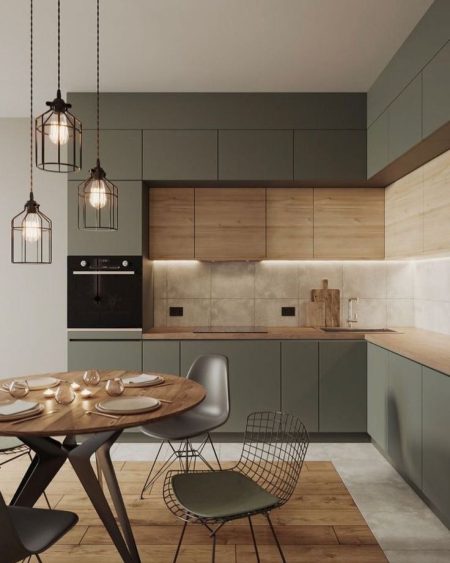When it comes to buying a home, most individuals choose to purchase something already on the market. However, in some situations, it can sometimes be advantageous to buy raw land and have a home built for you from the ground up.
For instance, in a seller’s market when there aren’t too many homes on the market but a huge demand for home purchases, you can bypass the costly process of haggling with sellers and paying way above the asking price for a home. And, of course, you’ll get to design a home that’s exactly the way you want it.
CNBC Select rounded up four of the best construction loan lenders to consider if you’re thinking of building a brand-new home or doing a major renovation of your existing home. We evaluated lenders based on a number of factors including the types of loans offered, customer support and others (see our methodology below).
TD Bank Mortgage
-
Annual Percentage Rate (APR)
Apply online for personalized rates; fixed-rate and adjustable-rate mortgages included
-
Types of loans
Fixed-rate, adjustable-rate mortgage, jumbo loans, construction-to-permanent loan, VA loan, FHA loan, medical professional mortgage
-
Terms
-
Credit needed
-
Minimum down payment
See our methodology, terms apply.
- Carries loan option that allows for a slightly smaller downpayment at 3%
- Has both online and in-person service
- Online support available
- Mobile app available
- Refinance options available
View More
View Less
Who’s this for? TD Bank is a household name in the banking industry, even calling itself “America’s Most Convenient Bank.” In addition to offering service online and through a mobile app, TD Bank has over 1,100 physical branches throughout the U.S., making it an ideal lender for those who prefer an in-person process.
This lender offers what’s known as a construction-to-permanent loan option. This means that your construction loan converts into a regular mortgage upon completion of the build. This loan option is typically advantageous for many aspiring homeowners since you only have to submit one application and pay one set of closing costs.
TD Bank’s construction loan has fixed-rate and adjustable-rate options and can be used for primary residences of 1 to 4 units and for second or vacation homes.
Flagstar® Bank
-
Annual Percentage Rate (APR)
Apply online for personalized rates; fixed-rate and adjustable-rate mortgages included
-
Types of loans
Conventional loans, FHA loans, VA loans, USDA loans, jumbo loans, adjustable-rate mortgages, construction loans, professional loans and Community Loans
-
Terms
-
Credit needed
-
Minimum down payment
0% if moving forward with a USDA loan
See our methodology, terms apply. Flagstar® Bank is a Member FDIC.
- Offers a wide variety of loans to suit an array of customer needs
- Fixed-rate and adjustable-rate mortgages available
- Borrowers who qualify for a jumbo loan can apply for up to $3 million
- Has an online process but also in-person branches
- Home equity loans are only available in limited geographic areas
View More
View Less
Who’s this for? Flagstar Bank offers a couple of different construction loan options: It offers a renovation loan, a construction draw and a one-close construction loan. The renovation loan is meant for those who are purchasing a property that needs significant repairs; instead of applying for two loans (a mortgage and a separate renovation loan) this option lets you roll both expenses into one loan. This way, you’ll pay just one set of closing costs and have just one monthly payment.
The construction draw option lets you pay only interest during the phase where your home is being built (the build must be completed within 12 months, though). Once your build is complete, you’ll need to apply for a mortgage to cover the principal payments plus the monthly interest. This is called an end loan. With this option, you’ll have to submit more than one application and pay more than one set of closing costs.
With the one-close construction loan, you’ll pay interest during the home’s building phase (similar to the construction draw option) except your construction loan will convert to a traditional mortgage upon completion of the build. This means you only have to submit one application and pay one set of closing costs.
Citizens Bank Mortgage
-
Annual Percentage Rate (APR)
Apply online for personalized rates; fixed-rate and adjustable-rate mortgages included
-
Types of loans
Fixed-rate mortgage, construction loans
-
Terms
-
Credit needed
-
Minimum down payment
See our methodology, terms apply.
- 0.125% mortgage rate discount available to existing customers in New Hampshire, Vermont, Massachusetts, Rhode Island, Connecticut, New York, New Jersey, Delaware, Pennsylvania, Ohio and Michigan
- Has both online and in-person service
- Online support available
- Mortgage rate discount isn’t available in all states
View More
View Less
Who’s this for? Citizens Bank offers a construction-to-permanent loan option, which means borrowers will only submit one application and pay for one set of closing costs. But the most appealing feature of this loan is that borrowers can take up to 18 months to complete construction on their homes. Typically, construction loan lenders only allow borrowers 12 months to finish construction, so the extra time allows your project to recover from any snags in the plan or delays.
For your permanent financing, you can choose from fixed or adjustable-rate options.
Cardinal Financial Mortgage
-
Annual Percentage Rate (APR)
Apply online for personalized rates; fixed-rate and adjustable-rate mortgages included
-
Types of loans
Conventional loan, FHA loan, VA loan, USDA loan, jumbo loans and construction loans
-
Terms
-
Credit needed
Minimum of 550 for some loan types
-
Minimum down payment
See our methodology, terms apply.
- Wide variety of home loan options
- More accessible loan options for borrowers with low credit scores
- Online support available
- Down payment assistance available in all 50 states
View More
View Less
Who’s this for? Cardinal Financial is an online lender that boasts low credit requirements for its various home loan options. According to one blog post on the company’s website, it accepts credit scores as low as 550 for VA and FHA loans. FHA loans typically require a credit score of at least 580. Jumbo loans typically have a credit score requirement of 700 but Cardinal Financial considers jumbo loan applicants with a minimum credit score of 660.
This lender offers construction loans for both home renovations and brand-new home construction.
A construction loan is a short-term loan that can be used to cover the cost of building a brand-new home. Typically, the funds get disbursed in increments as the home-building project progresses, and the construction must be completed within 12 months.
This option can be ideal for individuals who want a home that’s extremely customized to their liking, but the process can often be very costly since you’ll need to purchase land to build on.
Once you’re approved for a construction loan, the funds get disbursed to your checking account incrementally as your construction progresses. An appraiser will usually check in during different stages of the build to approve more fund disbursements for you.
During the building stage, you’ll typically only pay interest on the loan. Once the build is complete, the loan converts to a traditional mortgage (if you choose a construction-to-permanent loan) and you make payments toward both principal and interest. If you chose a construction-only loan, you’ll need to apply for a separate mortgage (called an end loan) to pay off the principal on the construction loan, or you can pay the principal off out of pocket in one lump sum.
Most lenders consider a credit score of at least 680 for a construction loan. Some may actually require a minimum of 720. As with any other form of credit, though, a higher credit score means you’re more likely to get approved for your desired funding amount. Plus, you’ll be able to qualify for some of the lowest interest rates offered by the lender.
If your credit score isn’t yet considered to be in a healthy range, it’s recommended that you take steps to improve your score before submitting loan applications.
A construction loan is used to finance the cost of a property that hasn’t been built yet. A regular or traditional mortgage is used to purchase an existing property. Construction loans are also meant to be short-term loans, lasting only up to 12 months before you’ll have to conclude your build and convert the loan into a traditional mortgage. Regular mortgages, though, are long-term loans, which are typically meant to be paid off in as little as 10 years and as long as 30 years.
Various lenders offer both fixed-rate and adjustable-rate loans for new builds. Once you lock in a rate for the construction phase of the project, that same rate typically carries over into the traditional mortgage payment phase as long as you choose a fixed-rate loan.
Construction loans require a licensed contractor or builder to carry out the construction phase (plans for the home and for the contractor must be confirmed and submitted before you can be approved for a loan). If you are not a licensed contractor, you cannot act as your own general contractor for the construction of your home.
Building a home can be a very exciting but taxing process, especially since construction loans can sometimes be tougher to come by. Still, borrowers should do their homework to make sure they agree with all the terms set forth by a lender and that the loan they ultimately go with is best for their needs.
Subscribe to the CNBC Select Newsletter!
Money matters — so make the most of it. Get expert tips, strategies, news and everything else you need to maximize your money, right to your inbox. Sign up here.
To determine which construction loan lenders are the best, CNBC Select analyzed dozens of U.S. mortgages offered by both online and brick-and-mortar banks, including large credit unions, that come with fixed-rate APRs and flexible loan amounts and terms to suit an array of financing needs.
When narrowing down and ranking the best construction loans, we focused on the following features:
- Fixed-rate APR: Variable rates can go up and down over the lifetime of your loan. With a fixed rate APR, you’ll lock in an interest rate for the duration of the loan’s term, which means your monthly payment won’t vary, making your budget easier to plan.
- Types of loans offered: The most common kinds of construction loans include construction-to-permanent loans, construction-only loans and renovation loans. Having more options available means the lender can cater to a wider range of applicants.
- Fees: Common fees associated with mortgage applications include origination fees, application fees, underwriting fees, processing fees and administrative fees. We evaluate these fees in addition to other features when determining the overall offer from each lender. Though some lenders on this list do not charge these fees, we have noted any instances where a lender does.
- Flexible minimum and maximum loan amounts/terms: Each mortgage lender provides a variety of financing options that you can customize based on your monthly budget and how long you need to pay back your loan.
- No early payoff penalties: The mortgage lenders on our list do not charge borrowers for paying off the loan early.
- Streamlined application process: We considered whether lenders offered a convenient, fast online application process and/or an in-person procedure at local branches.
- Customer support: Every mortgage lender on our list provides customer service via telephone, email or secure online messaging. We also opted for lenders with an online resource hub or advice center to help you educate yourself about the personal loan process and your finances.
- Minimum down payment: Although minimum down payment amounts depend on the type of loan a borrower applies for, we noted lenders that offer additional specialty loans that come with a lower minimum down payment amount.
After reviewing the above features, we sorted our recommendations by best for in-person service, loan variety, a longer construction period and lower credit scores.
Note that the rates and fee structures advertised for mortgages are subject to fluctuate in accordance with the Fed rate. However, once you accept your mortgage agreement, a fixed-rate APR will guarantee your interest rate and monthly payment remain consistent throughout the entire term of the loan, unless you choose to refinance your mortgage at a later date for a potentially lower APR. Your APR, monthly payment and loan amount depend on your credit history, creditworthiness, debt-to-income ratio and the desired loan term. To take out a mortgage, lenders will conduct a hard credit inquiry and request a full application, which could require proof of income, identity verification, proof of address and more.
Catch up on CNBC Select’s in-depth coverage of credit cards, banking and money, and follow us on TikTok, Facebook, Instagram and Twitter to stay up to date.
Editorial Note: Opinions, analyses, reviews or recommendations expressed in this article are those of the Select editorial staff’s alone, and have not been reviewed, approved or otherwise endorsed by any third party.
Read the full article here














